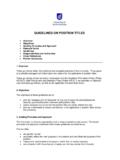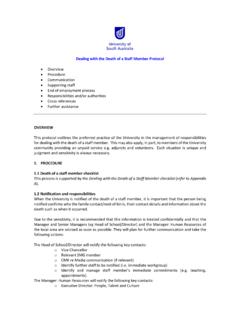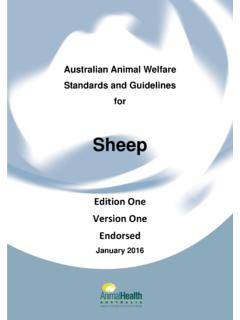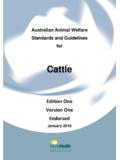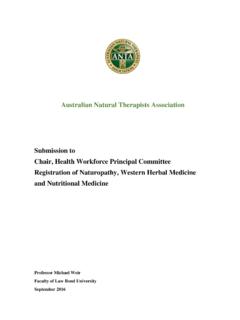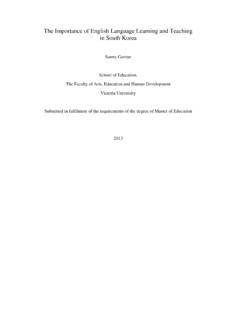Transcription of Legislated and ethical responsibilities A UniSA …
1 Legislated and ethical responsibilities of staff:A Quick UniSA Induction and ethical responsibilities of staff INTRODUCTION 1 Congratulations on your appointment to the University. CONTENTS ethical conduct 2 Use of the intellectual property of others 3 Dealings with people under the age of 18 3 Program delivery for overseas students 5 Occupational health and safety 6 Responsible practice in research 7 Trade practices and consumer law 8 Equal opportunity and anti-discrimination 9 Confidentiality of students personal information 10 Privacy 11 INTRODUCTION Welcome to the University of South Australia.
2 UniSA is committed to assist you to acclimatise to the workplace and to understand your role and responsibilities and the work and directions of the institution. To support this, UniSA offers an extensive induction process. You can find out more about this at our Induction website. Understanding your responsibilities Staff have many responsibilities , given expression in a number of places including your position description, the University of South Australia Enterprise Agreement, in legislation and in the University s policies, procedures and guidelines. These responsibilities arise because the University is an employer, a provider of goods and services , a body corporate and a recipient of Commonwealth funding.
3 This guide provides an overview of essential knowledge and links to where you can find more detailed information. We offer this as a starting point as you begin to work your way through UniSA policies and procedures during the induction process, when your role changes or at any stage you want to revisit what you need to know. It is important to speak with your manager to identify what is particularly important for you to know about in more detail than that provided in the summary information below and also if there is anything else specific to your role that you should learn and understand. We encourage you to read this guide in your first month of employment and discuss any issues that it raises for you with your manager.
4 To assist you in remaining informed of changes, the guide is updated annually. The Risk management for managers resource complements this guide. Justene Knight March 2016 Legislated and ethical responsibilities of staff 2 Focus of legislation/code Essential knowledge Further information ethical conduct UniSA Code of ethical Conduct The Code establishes principles to be applied by all staff in their activities and behavior. We should: conduct ourselves with integrity.
5 This includes treating others with dignity and respect and giving members of the University community the care and courtesy that we would wish to receive ensure our actions are fair, honest and impartial avoid actual or perceived conflicts of interest and declare conflicts of interest when they are unavoidable conduct ourselves with care and skill, and ensure our actions do not conflict with the requirements of integrity and objectivity or the University of South Australia Act We must not: allow dishonesty, personal prejudice or bias to influence us in the conduct of our employment accept gifts, benefits or hospitality if their nature and value may be seen by the wider community as compromising objectivity and as likely to influence us in our official capacity use confidential information for personal advantage or for the advantage of another condone the use of any statement which is misleading, false or deceptive.
6 Code of ethical Conduct Equal Opportunity Policy University of South Australia Enterprise Agreement Specific guidelines apply to ethical use of research data. See Responsible practice in research below. Legislated and ethical responsibilities of staff 3 Focus of legislation/code Essential knowledge Further information Use of the intellectual property of others Copyright Act 1968 (Cth) Licenses Moral Rights Strict limitations apply to the extent to which staff can digitise, publish online, broadcast, photocopy or otherwise reproduce the creative and intellectual work of others.
7 UniSA is bound by the requirements of license agreements with individual publishers and societies as well as by the educational statutory licenses under the Copyright Act. The Act enables staff, for teaching purposes, to make multiple copies of reasonable portions of published works. Provisions vary for different media music, text, pictures etc. Under the Copyright Act, a reasonable portion for text-based works is defined as: 10% of the pages from a book published in hardcopy format or if the work is divided into chapters, up to one chapter. 10% of the number words from a work in electronic format ( webpage) or if the work is divided into chapters, up to one chapter.
8 10% of the bars from a musical score. A single article from a periodical publication (journal, newspaper) or more than one article if on the same subject matter. Staff copying material for inclusion in online teaching must do so through the Digital Readings Service in the Library. The Copyright Act covers the moral rights of authors of literary, dramatic, musical or artistic works and cinematograph films and requires that where the creative and intellectual property of others is reproduced or used it must be properly acknowledged and attributed. If staff are unclear about the legality of any copying they intend to do, then they should check first with the Copyright Office.
9 Questions relating to database licenses should be directed to the Library. Copyright webpage Contact the Copyright Office email: Digital Readings Service website For digitisation and database licenses contact Legislated and ethical responsibilities of staff 4 Focus of legislation/code Essential knowledge Further information Dealings with people under the age of 18 Age Discrimination Act 2004 (Cth) Australian Human Rights Commission Act 1986 (Cth) Children s Protection Act 1993 (SA) Classifications (Publications, Films and Computer Games) Act 1995 (SA) Education Services for Overseas Students Act 2000 (Cth)
10 - National Code of Practice 2007 standard 5 Equal Opportunity Act 1984 (SA) Liquor Licensing Act 1997 (SA) Minors Contracts (Miscellaneous Provisions) Act 1979 (SA) It is unlawful for UniSA to discriminate against a student on the grounds of age. In the course of carrying out their work or study, any staff member, student or volunteer who forms a reasonable suspicion that a person under 17 is being or has been abused or neglected must report their suspicion to the Families SA child abuse report line (131478). With some exceptions, UniSA staff, students and volunteers who have contact with children, who manage anyone who has contact with children, or who access children s sensitive records must have their relevant history assessed by the DCSI, or provide a criminal history report to UniSA , and be deemed suitable to work with children.
